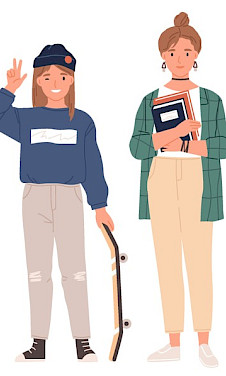
Are you old enough?
Description
At 18, a person becomes an adult and has all the responsibilities and freedoms of an adult. However, a person does not get all of this at once. Indeed, from year to year, a young person accumulates freedoms and responsibilities in society. As students spend long hours under your supervision at school, it is essential to explain to them what they can do or what he or she should be responsible for.
This teaching toolkit includes a PowerPoint presentation which has a lot of information in the notes. In these notes, we explain in more detail the information given in the slides, offer avenues for further reflection and provide legal sources. To ensure that the students have properly integrated their new knowledge, the student’s guide offers many activities.
Educational objectives
- To help students understand their legal rights and responsibilities.
- To use dialogue to reach consensus.
- To reflect on ethical issues.
Subjects and subject-specific competencies
Culture and Citizenship in Québec - Elementary Cycle Three
Cultural realities: Relationships between people - Collective life.
Compulsory content, and related topics and examples: Rights and freedoms, Children’s rights and parental responsibilities.
- Competency in Cycle Three: Reflects critically on cultural realities:
- Engages in dialogue:
- Supports own ideas.
- Develops responses:
- Proposes responses.
- Compares responses.
- Justifies choices.
- Engages in dialogue:
Culture and Citizenship in Québec - Secondary II
Cultural realities and compulsory main concepts: Autonomy and interdependence - Autonomy.
Compulsory specific concepts: Self-determination, Freedom of choice.
Cultural realities and compulsory main concepts: Democracy and social order - Rights and responsibilities.
Compulsory specific concepts: Human rights, Responsibilities as a citizen.
- Competency 2: Reflects on ethical questions:
- Engages in dialogue:
- Uses methods to support own ideas.
- Develops a point of view:
- Identifies possible responses.
- Evaluates the effects of responses on oneself, others, relationships and society.
- Justifies own choices using criteria.
- Engages in dialogue:
Duration: Three 60-minutes sessions




